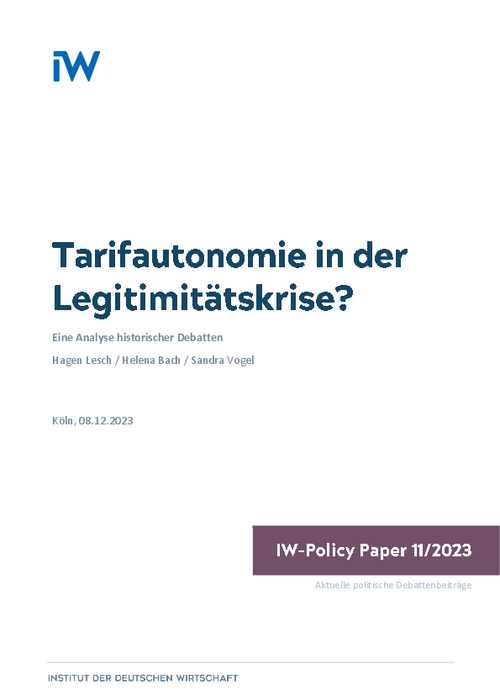In Germany, the employers recognised the trade unions as the appointed representatives of the employees in November 1918.

Collective bargaining autonomy in a crisis of legitimacy?

In Germany, the employers recognised the trade unions as the appointed representatives of the employees in November 1918.
This introduced collective bargaining autonomy. Since then, it has been observed that the state monitors and sometimes steers the collective bargaining process. This behaviour can be explained by using a Principal Agent Model as an analytical framework. The state acts like a princal, while the social partners behave like agents. While the state leaves the regulation of wages and working conditions to the social partners, it expects their loyalty in return. In this sense, collective bargaining autonomy must legitimise itself by beeing useful. An analysis of historical debates since 1918 shows: If the social partners do not contribute to the economic and social policy objectives of the state, the state uses various steering instruments to restore their loyalty and ensure the usefullness of collective bargaining autonomy. Overall, some learning processes and a high degree of path dependency of the institutional framework can be observed. The learning processes show the state should strengthen and not weaken social partners‘ responsibility in the event of future steering of collective bargaining autonomy.

Collective bargaining autonomy in a crisis of legitimacy?

More on the topic

German Wage Policy between Inflation and Stagnation: Are Conflicts with the Aims of Monetary Policy Looming?
After the economic and financial crisis of 2008/9, the German labour market soon began to recover, creating scope for a comparatively expansive wage policy.
IW
The Pros and Cons of Trade Union Membership
The decline in collective bargaining coverage in Germany is often attributed to the reluctance of companies to join an employers' association which negotiates collective agreements.
IW